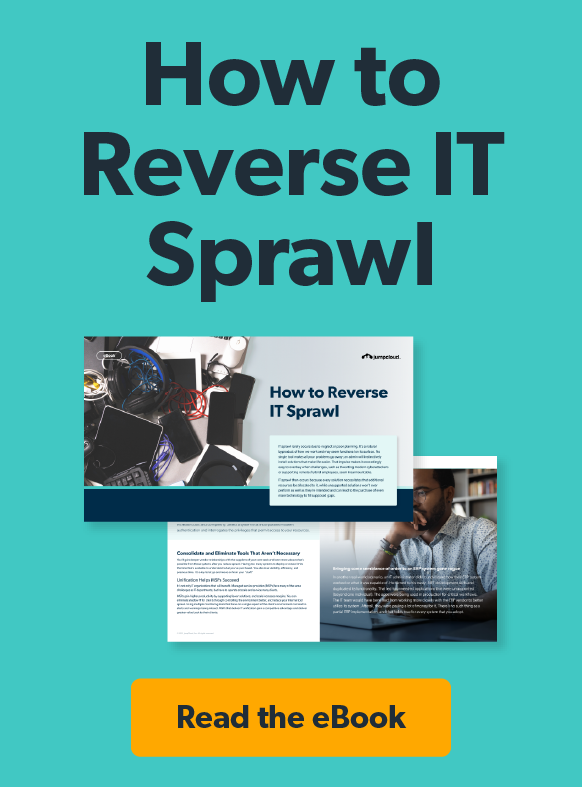LDAP infrastructure has been widely implemented by IT admins since its inception in the mid 1990s. The concept of LDAP was brilliant at the time: a lightweight, flexible, and open protocol for directory authentication.
However, as IT infrastructure has evolved, the open source LDAP has transmuted into a solution that is difficult to implement, customize, and maintain, yet it is foundational to just about every network environment.
Traditional LDAP setups not only require hardware and software, but also a great deal of networking infrastructure and monitoring to ensure that the authentication approach is both highly available and secure.
An additional level of effort is required to connect IT resources to said LDAP infrastructure since each device or application leverages LDAP in a slightly different way.
Managing LDAP can be a daunting (and expensive) task for any IT admin, regardless of your experience or technical expertise. Is there a free cloud LDAP alternative you and your organization can take advantage of that doesn’t have all of the drawbacks of running an open source LDAP server yourself?
Current LDAP Options
Before we dive into a free cloud LDAP alternative, let’s explore some of the LDAP options on the market today. One of the most commonly known options is OpenLDAP™, an open source implementation of LDAP that’s been a long-standing favorite of IT admins. While it is free to use, OpenLDAP is challenging to implement and manage without the proper technical knowhow. Additionally, as an on-prem instance, OpenLDAP requires physical hardware to run, which drives up costs for IT organizations. OpenLDAP isn’t a “fire and forget” solution.
Other LDAP options include 389 Directory Server or Red Hat Directory Server. Both of these solutions are free to use as well, although the process of leveraging them is similar to OpenLDAP. They are on-prem instances, and require hardware and the associated networking / security / high availability equipment, plus keen and on-going management.
These types of free LDAP options raise three major challenges for IT organizations:
- Do you have the time and resources available to install, configure, and manage a self-hosted solution?
- How will you secure a solution that was meant for on-prem environments with your modern-day cloud architecture?
- Do you have enough LDAP experience to work through the arcane and complex integrations?
If those challenges feel insurmountable by your organization, then you are likely seeking out an LDAP instance delivered ‘as a service’ available from the cloud.
Hosted Cloud LDAP
Cloud LDAP alleviates the burden of implementing LDAP by relying on off-prem, pre-configured and managed LDAP servers. Busy IT admins can also offload the heavy lifting of managing LDAP and still benefit from additional scalability and availability. Connecting users to applications and network infrastructure also becomes a simpler process with cloud LDAP.
Instead of many different implementations, there is a standard approach to the schema, configuration, and integration. Applications, such as Jira, Confluence, Docker, MySQL, and OpenVPN are easier to integrate. Since the LDAP instance is hosted in the cloud, and many of these applications are now hosted in the cloud, the networking associated with securely connecting them is also much easier.
Here are the top four reasons IT admins should switch from on-prem LDAP instances to cloud LDAP:
- Save time and avoid the management headache
- Simplify access to cloud servers and infrastructure apps
- Ensure security and high availability at a lower cost
- Streamline compliance and auditing.
Try JumpCloud’s Cloud LDAP
JumpCloud’s Cloud LDAP solution is a globally distributed network of OpenLDAP servers that IT admins can leverage by simply pointing their applications and storage infrastructure to it. For IT admins looking to authenticate Windows, macOS, and Linux systems against LDAP, JumpCloud provides a simple agent-based architecture for native user management and authentication, providing greater redundancy and performance than traditional on-prem LDAP infrastructure.
Historically, one of the core highlights of the platform has been the cloud LDAP offering. With so many DevOps and technical applications being leveraged in modern organizations, authenticating via LDAP for Kubernetes, Docker, Jenkins, and thousands of others is easy and secure. Sign up for a free 30 Day Trial today.





